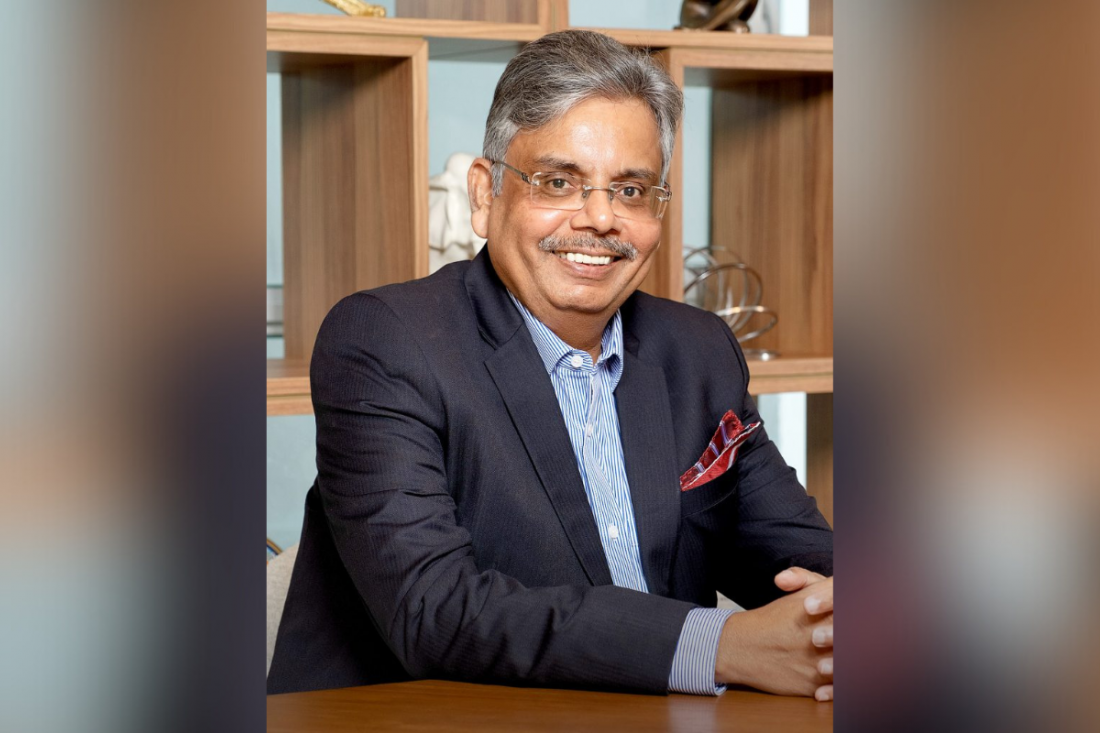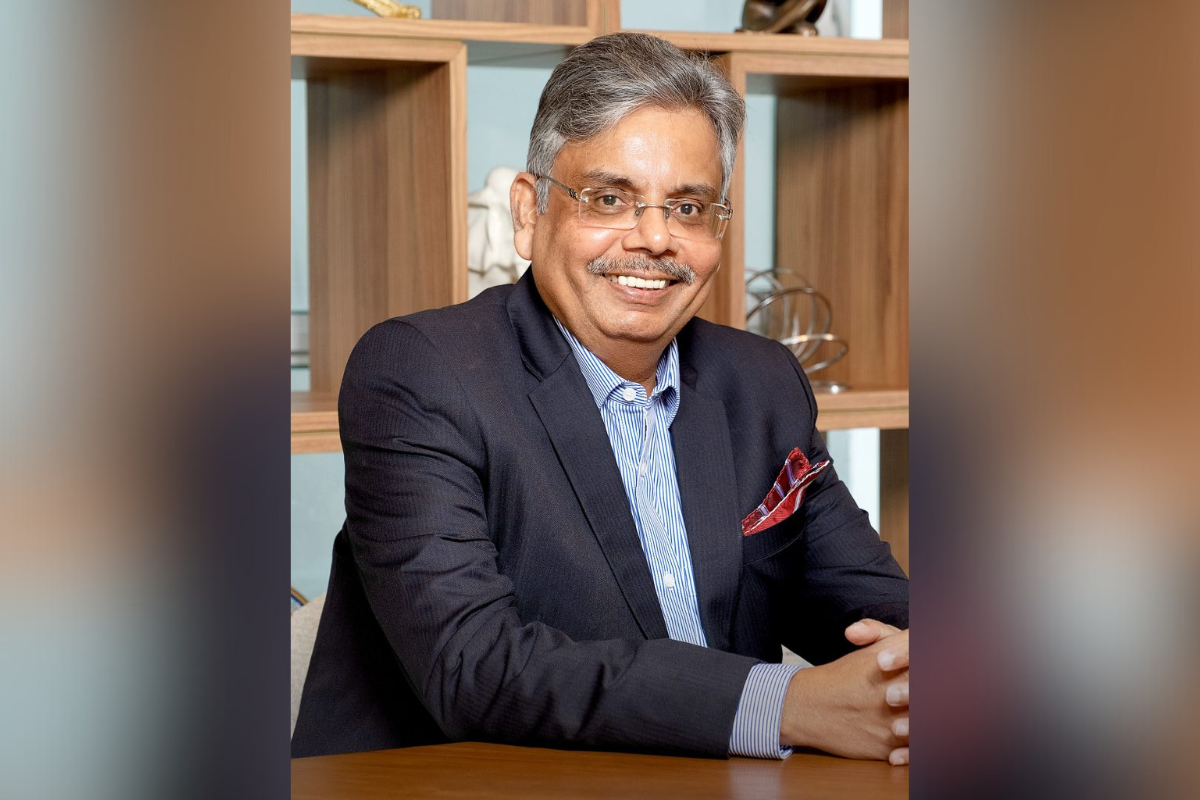Sustainability is a multi-faceted term these days. With so much implied by one word, it’s easy to forget what it can mean.
The world’s farmers haven’t forgotten what it means to them, however. Sustainability is their lifeblood; making their land work for them is what drives them.
As the world changes and climates become harsher, it’s more important than ever for farmers to have the backing of the agritech industry to make their job easier.
And the agritech industry’s top players know how much is riding on their work. In India, where conditions vary wildly from coast to coast, agricultural solutions can make a world of difference.
Close to Home
That’s why ADAMA India has ensured the expansion of its footprint keeps it close to the farmers who rely on its products. As one of the country’s top three agricultural chemical (agrichemical) companies, ADAMA India has a deep understanding of the Indian ecosystem and the unique needs of its farmers.
Shalabh Jain, ADAMA India’s Director of Operations, says ADAMA’s strong R&D makes it possible to release several new products each year and thus stand apart from the competition.
“We have a very strong backbone in our Israeli parent company’s headquarters. Much of our research is split between Israel, China and our state-of-the-art R&D center in Hyderabad,” he says.
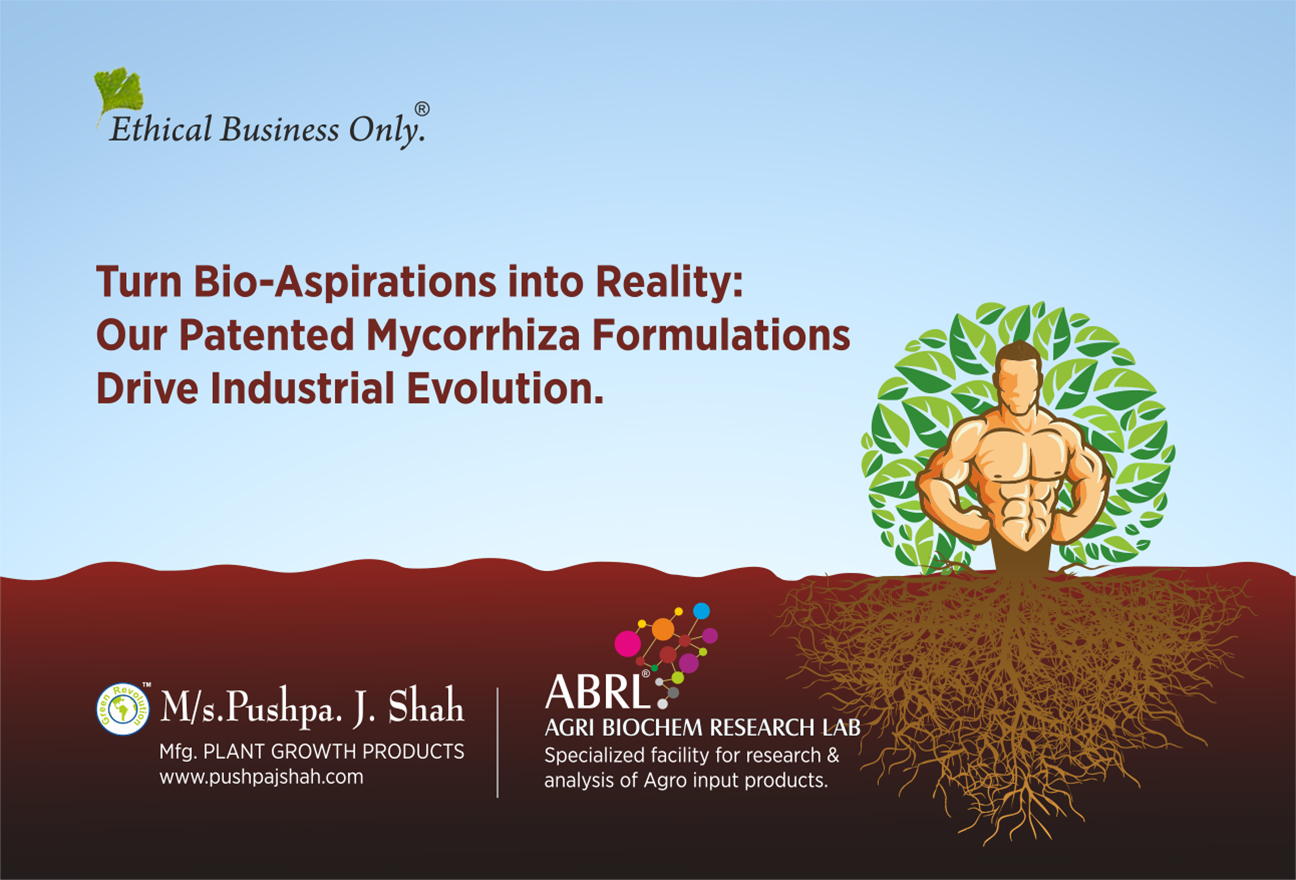
Advertisement
“So we have great products in our basket every year. This is something we’re very proud of, and it’s made us one of the most formidable companies in India.”
Eight years after joining ADAMA India as its Director of Supply Chain, Jain’s work has doubled the company’s revenue.
“We’re currently close to US$400 million,” he says. “That’s made us top three in India, but with our growth and given what we’ve got in the pipeline, I believe we’ll be top two by the end of 2026.”
Freedom and Trust
If there’s a secret to Jain’s success, he says it comes down to freedom and trust. “Our CEO trusts his management and gives us room to operate,” he says.
“My operating style is very similar here in India. I oversee six senior managers responsible for their own domains, and they have full freedom to operate. I obviously set the boundaries, but then the strategy is theirs. Bottom line: I’m not a micromanager.”
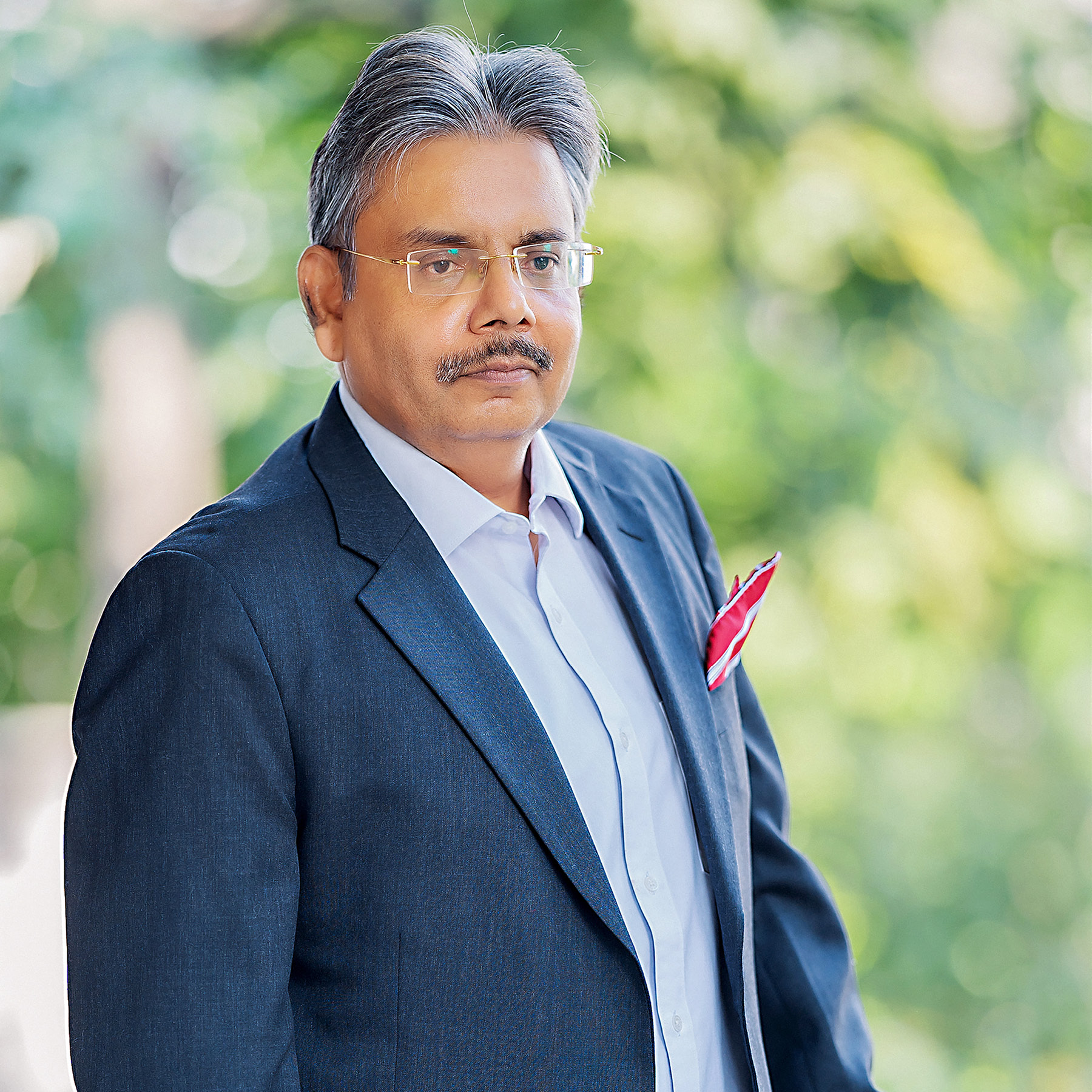
“When you’re dealing with the retailer who’s directly dealing with the farmer, you get a flow of information from the front line that’s very fast and filter-free.”
Jain’s style has seen him progress through the ranks of ADAMA India.
“Today, I’m a full-time director on the board. I’m also responsible for the Asia–Pacific region, and prior to that, Africa, the Middle East and Turkey, and, obviously, India.”
Keeping in Contact
ADAMA India’s B2C model means the company works with 13,000 retailers directly, rather than distributors. Jain says this gives ADAMA India an edge.
“Other agrichemical companies that deal with distributors are one level removed from customers. By going directly to retailers and eliminating the distributor level in the channel, we get a very clean indication of the realities at the ground level,” he says.
“When you’re dealing with the retailer who’s directly dealing with the farmer, you get a flow of information from the front line that’s very fast and filter-free.”
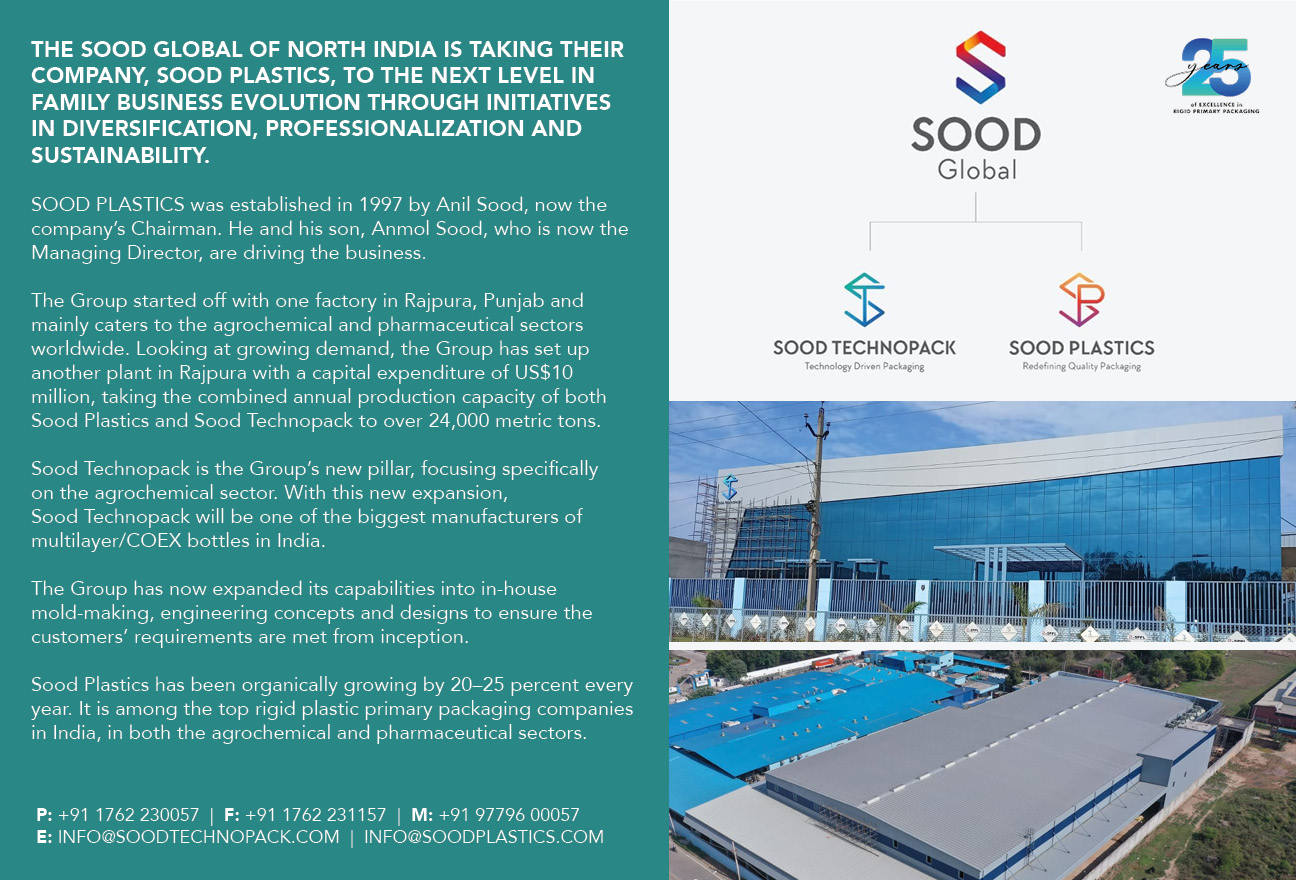
Advertisement
Having a finger on the industry’s pulse in this way is reflected in ADAMA India’s variety of products, from herbicides and insecticides to growth regulators. Most of these are manufactured by ADAMA itself.
“We believe in doing our own manufacturing,” Jain says. “Many companies rely on third parties for that, but since we’re dealing with proprietary molecules in which we’ve invested time and money to research and develop, we feel most comfortable producing through our own manufacturing facilities.”
Greener Alternatives
This then gives ADAMA an edge in the marketplace, particularly given the Indian government’s strict industry guidelines.
“In the past, farmers have used excessive chemicals and that’s caused setbacks,” Jain says. “So being a research company, we sell value proposition to farmers by bringing new chemistries and technologies designed to achieve better yields with greener products.”
The extended range of roles made possible by an in-house manufacturing plant is also a pathway for employees to progress.
“Whether it’s engineers, operators, contractors or full-time employees, being able to manufacture our own products has shown higher engagement at all levels of the hierarchy,” Jain says.

“Being a research company, we sell value proposition to farmers by bringing new chemistries and technologies designed to achieve better yields with greener products.”
“This is something we’re very proud of, that the quality we can deliver is far and away above that of our competitors because of what we can do in our plants.”
Jain’s experience in the supply chain world means that ADAMA India has a strong network of partners to lean on in order to produce such a range.
“We’re talking chemicals, packaging materials, raw materials, active ingredients, services,” he says. “For us, even the smallest supplier is key.”
Whether it’s packaging material or chemicals for formulation, every partner is an equally important part of the ADAMA India chain, he says.
“They can make the chemical in the bottle, they can make the bottle itself, or even the paper instruction leaflet inside the bottle. There is no philosophy here about clients being of high or low importance. We don’t classify.”
Respectful Partnerships
The only points of difference are whether a partner is long-term or short-term, and where they’re located. “We have relationships within India, but also in other geographies as well,” Jain says.
“And over the years, a working partnership comes down to trust, because if you try to cut corners, the trust is gone and the partnership will never work. This is one of our basic values.”
All of ADAMA India’s values – a get-it-done attitude, empowerment, passion and personal best results – are clearly shared with new employees, Jain adds.
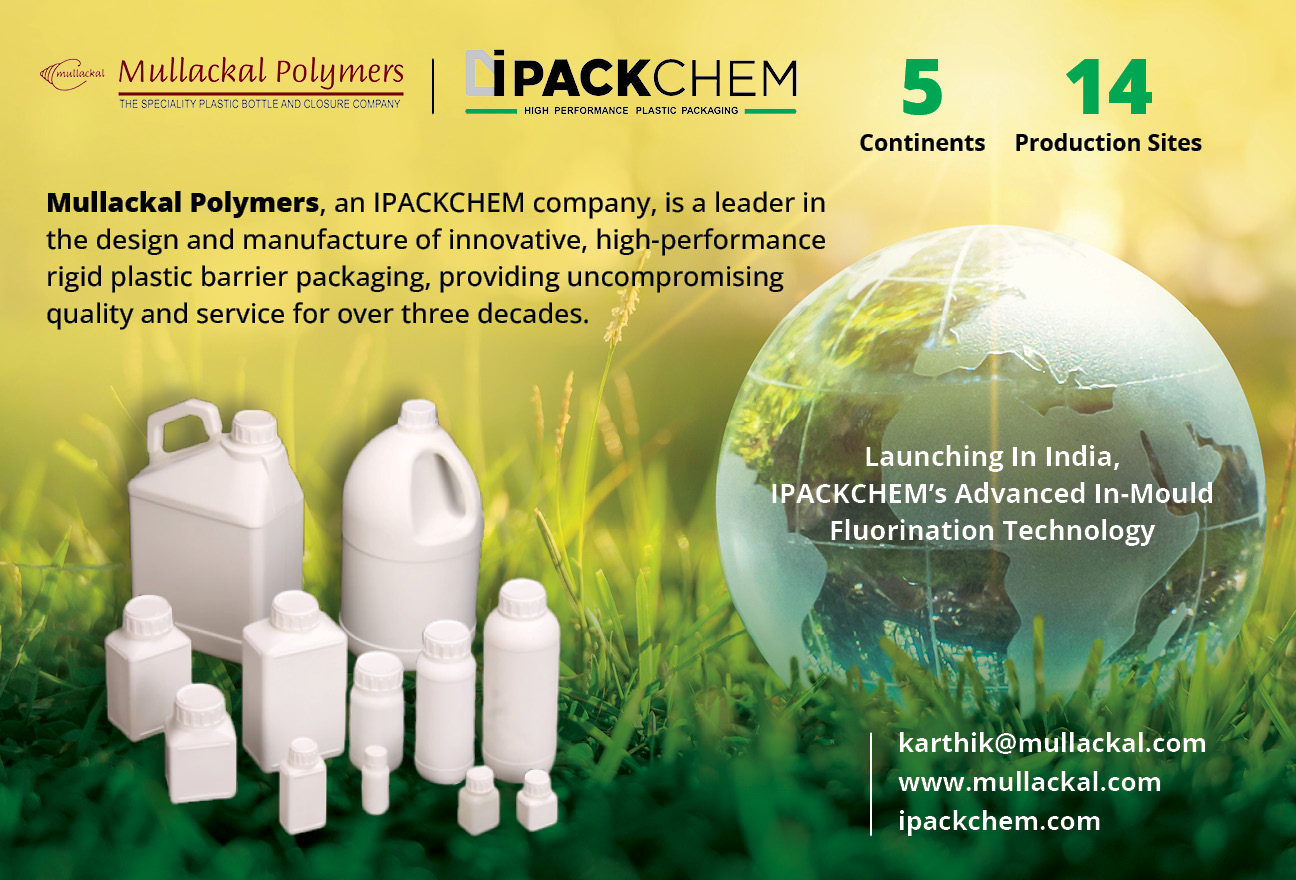
Advertisement
“Whenever we onboard new staff, they’re given very clear guidelines on how they’re expected to engage with partners and long-term associates,” he says.
“In fact, our philosophy is not to refer to them as suppliers or vendors; they are our partners. When you engage in a partnership, the bonding is much deeper and the cooperation is better.”
This goes as far as inviting ADAMA India’s partners to annual forum events for face-to-face engagement. “Over time, we’ve seen that the levels of trust are much higher.”
And when such things mattered most – during the height of the COVID-19 pandemic – ADAMA India wasn’t left in the lurch. “We didn’t stop operations for even 24 hours,” Jain says. “All down to the kind of relationships we enjoy with our partners.”
A Stress-free Environment
Internal relationships are just as important at ADAMA India.
Jain says he likes to start his day with a chat over coffee with his team. “It’s not even related to work,” he says.
“It’ll be about what’s going on in the world in case somebody has some insights. That’s 30 minutes out of our day, then we all push off to work.”
This relaxed atmosphere means that despite the high-end work done by ADAMA India, Jain’s stress levels rarely edge into the red.
“Something I’ve learned over the past 30 years is to avoid stress in the workplace. It’s just not necessary.”
When things do get too intense, Jain is rescued by his dog.

“Something I’ve learned over the past 30 years is to avoid stress in the workplace. It’s just not necessary.”
“He’s my stress buster,” he says. “I’ll take him for a walk and play with him, and instantly my stress levels are down.”
Ultimately, Jain believes sustainability in all its forms is the key to industry success today. “As a leader in the organization, the foremost thought in my mind is sustainability,” he says.
“If we’re not bringing sustainable products to the table as it exists today, we won’t survive for long. No business will.”
This, he says, is a deeply held belief throughout ADAMA India and the company is investing accordingly.
“This is what we believe, and it is what will take us forward.”

